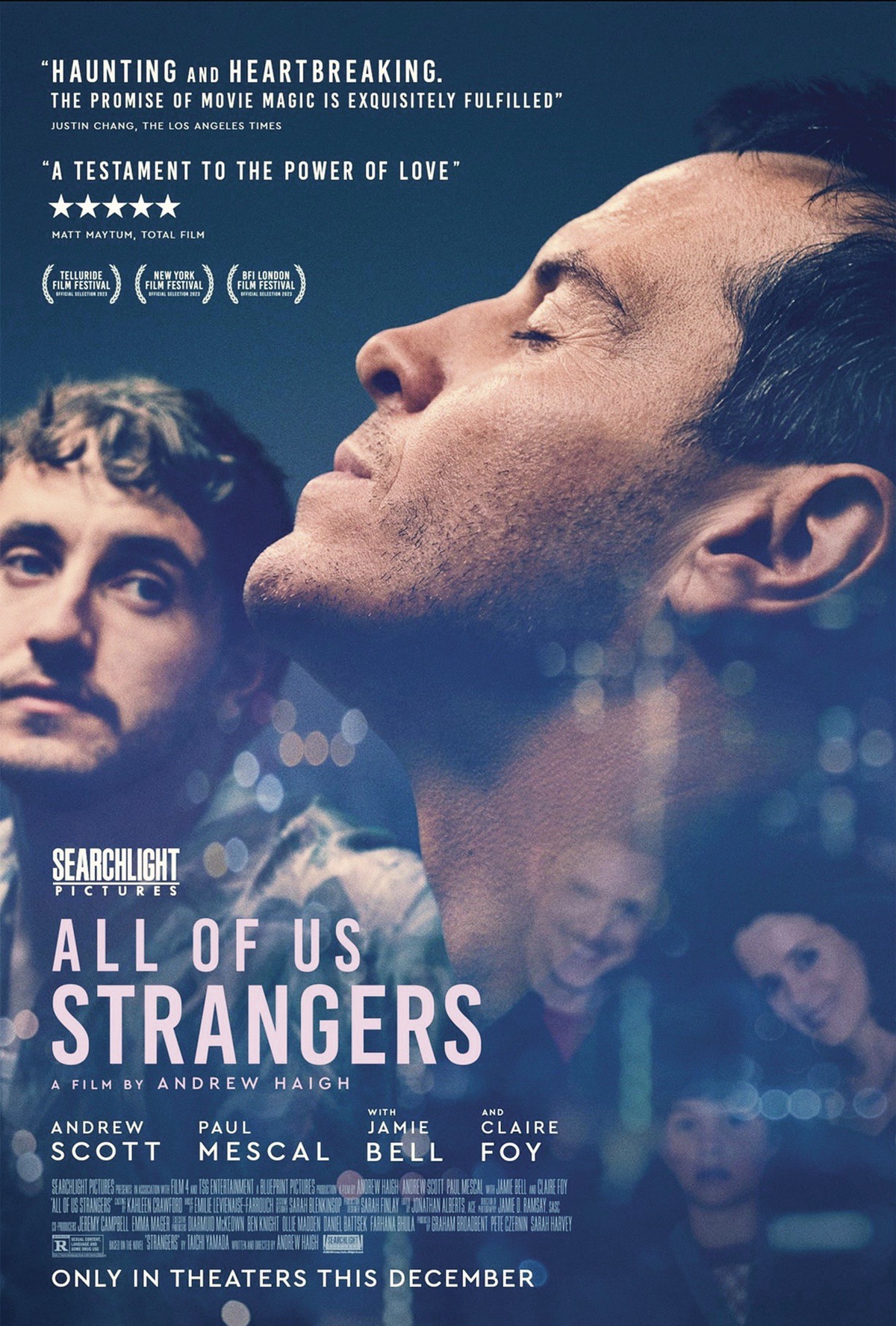A complete tragedy; that is the phrase you hear when someone or something is overlooked for accolades. Awards, of any kind, are fickle and subjective. Prizes for art have always felt a bit stranger: what makes this piece better than that? Critics have brought up some under-appreciated films recently, some of which I agree. Past Lives was one of my favorites of last year but earned some Oscar nods. May December only got one. Priscilla and Fallen Leaves both got a big goose egg. My recommendation this week though; this was criminal.

All of Us Strangers landed on Hulu a week ago with little fanfare and no physical media. Come on, Disney. If this was the buzziest film, I bet you wouldn’t hear the end of it. Does anyone remember Nomadland, despite all the praise?
Wasting away in a London flat, screenwriter Adam watches music videos and attempts to work on a teleplay based on his parents who he lost in a car crash at twelve. After a random fire alarm, he encounters a fellow tenant at his door. Henry, drunk but charismatic, flirts and tries to worm his way into Adam’s apartment. He is rebuffed though, but they meet again in the elevator sometime later.
Back to the A-plot, Adam finds photos of his childhood home. Going to investigate, he walks past the house and into a park. In a field he sees a young man watching him. Is this a pickup? When he follows, he recognizes him as his father and strikes up conversation. Asked back, Adam finds his mother is also still living in the same house. Both his same age, Adam’s parents exist out of time. In a stroke of magical realism, a reunion takes place.
Through subtle lighting and window reflections, Adam’s parents’ ghostly presence mirrors his own existence. Andrew Scott’s wounded yearning, through his eyes and voice, gives Adam wistfulness. He is not that boy physically, but emotionally he has been in stasis. When he argues and disagrees with his parents in various scenes, what was once ethereal becomes mundane. A lonely gay man, how Adam turned out distresses them in ways beyond measure. When his mother feels disappointed at first then scared for his wellbeing, wouldn’t that be natural for someone who died in the 1980s? Clare Foy and Jamie Bell give such richness to what could have been paper-thin caricatures. Each have powerful scenes with Andrew where the acting takes center stage, above deep cuts from The Ink Spots and the film’s own ambient score.
In only his fifth feature, Andrew Haigh has crafted a niche in the traditional chamber drama that he also transcends. A middle sequence where Adam and his neighbor Henry go to a club and take hallucinogens; each component from the editing to lighting and camerawork congeal, giving us a trip of our own into Adam’s own fractured headspace. Hues of pinks and purples both in Adam’s apartment and club; burnt red dusk light make us feel like we are in another astral plane, one that is achingly romantic. Paul Mescal is no slouch either. His Henry is impulsive but in that same longing as Adam, albeit far more desperate. His music cues suggest disconnection. But Haigh has a way of framing them that I haven’t seen since the 90s. This wouldn’t be any different if this was Julia Roberts and Hugh Grant, with the exception that both here are British and the obvious. By the time you reach the conclusion, Adam is completely fleshed out by his experiences. He is certainly more so than Bradley Cooper’s Lenny Bernstein. As “Frankie Goes To Hollywood” plays us out to the credits, it begs the question. Does emotion mean anything to the Academy anymore? Certainly, in this writer’s humble opinion, it counts for me. But to paraphrase a line from Frasier, let the awards fall where they may. This film has my tears and admiration, which means more in my book.



